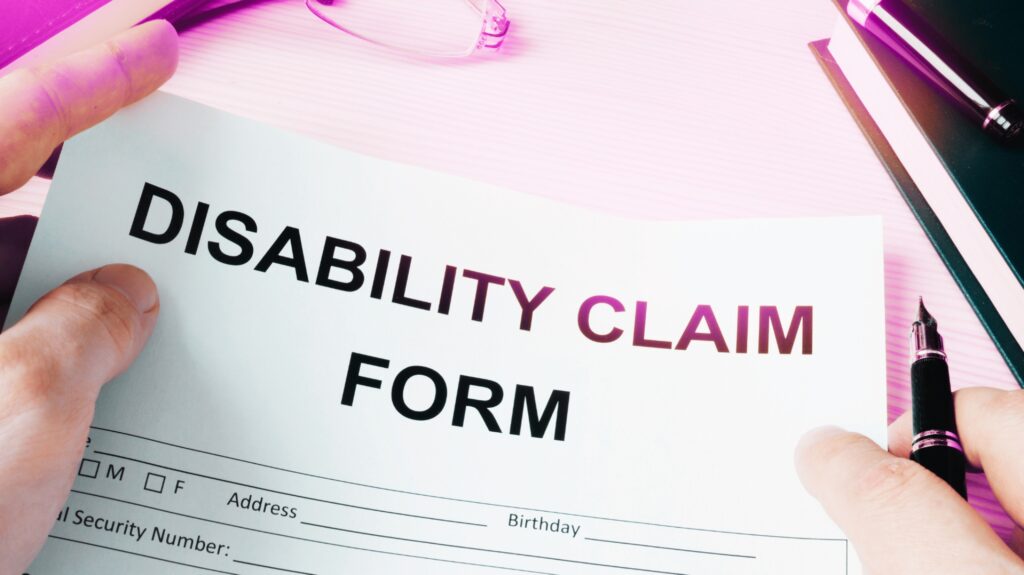Navigating Complex Disability Claims: Expert Strategies from Dr. Robert Krug
This post was last updated on November 19th, 2024

Navigating disability claims demands a keen understanding of various complexities. Those attempting to secure compensation for disabilities often encounter a labyrinth of legal, medical, and emotional hurdles. Prominent physician Dr. Robert Krug seeks to shed light on the intricacies of disability claims by delving into the challenges that claimants often confront.
Dr. Krug’s area of focus is brain health and non-narcotic pain management. With his vast experience, he understands the complexities and challenges of disability claims. The legal and medical nuances involved can be formidable, requiring a depth of understanding that eludes most in the realm of confusing forms and claim guidelines. Through information and education, he aims to facilitate a more equitable and just process, ensuring that those navigating disability claims do so with the understanding and support necessary for a fair resolution.
Understanding Disability Categories
Disability claims can be broken down into four primary categories—physical, mental, temporary, and permanent disabilities. Each category presents its own set of challenges and considerations, which significantly influence the claims process.
Physical disabilities, encompassing a spectrum of impairments ranging from mobility constraints to sensory limitations, often have clear, identifiable signs. In the claims process, documentation of these physical conditions is required.
“Understanding the distinct facets of physical disabilities is pivotal in presenting a compelling case for compensation,” notes Dr. Robert Krug.
On the other end of the spectrum are mental disabilities, which, though not always apparent, carry profound implications for individuals’ daily lives. Temporary disabilities, often arising from injuries or medical conditions for finite durations, introduce a temporal dimension to the claims process. Understanding the evolving nature of temporary disabilities is crucial for claimants navigating the often time-sensitive procedures.
Permanent disabilities, by contrast, present unique challenges in terms of long-term impact and sustainability. Claimants in all categories often fall prey to misunderstandings about the eligibility criteria for certain categories or inadvertently misrepresent the nature of their disabilities.
Balancing Diagnosis, Treatment, and Workplace Dynamics in Disability Claims
Navigating the complexity of disability claims often intersects with the realities of medical diagnosis and treatment options, workplace dynamics, and personal factors influencing recovery. An incorrect diagnosis or the exploration of alternative treatments can significantly impact the trajectory of a patient’s recovery.
Moreover, factors such as secondary gain issues and workplace challenges must be considered. Many individuals with temporary or permanent impairments can continue to work, provided they receive an accurate diagnosis, effective treatment, and appropriate workplace accommodations and limitations. The primary goal is to empower these individuals to recover from an accident or illness or to manage their condition effectively enough to remain in the workforce. This is a feasible objective even in cases of chronic conditions.
Dr. Robert Krug reminds us that “in those situations where circumstances preclude the ability to work and short or long-term disability is justified, understanding how to navigate the process is invaluable.”
Key Factors Influencing Disability Claims
The success of a disability claim relies on the representation of key claim factors, chief among them being medical evidence and documentation that substantiate the claim. From diagnostic reports and treatment records to expert opinions, understanding the depth and breadth of required documentation is vital for claimants seeking a favorable outcome.
Equally crucial in the claims process is the opinion of the treating physician.
“The treating physician’s unique position provides firsthand knowledge of the claimant’s medical history and ongoing treatment,” says Dr. Krug.
Disability claims are further complicated when pre-existing conditions come into play. From the challenges of establishing causation to the nuances of exacerbation and how they intertwine with the existing disability, it is necessary for claimants to represent their pre-existing conditions appropriately in relation to the disability to ensure coverage.
Navigating the Legal Landscape
The legal considerations related to disability claims are vast, and it is not uncommon for claimants to engage legal representation to navigate the claim, especially if it requires an appeal after initial denial.
The appeals process represents a crucial juncture in the trajectory of disability claims. Administrative law judges (ALJs) play a very important role in claims, and their role is akin to that of a referee. When a disability claim is initially denied, Administrative law judges review the appeal and case independently, ensuring a fair and unbiased decision. They consider the testimony of the claimant, examine medical evidence, and consult vocational experts to understand the full scope of the disability and its effects on the claimant’s daily life.
The Emotional Toll of Disability Claims
“Beyond the legal and medical complexities, disability claims exact a profound emotional toll on individuals attempting to have their claim approved,” says Dr. Robert Krug.
There is more to disability claims than grappling with the legal side. The process is an emotional journey as well and often has a significant impact on the claimant and the claimant’s family. While coping with the disability, they must then engage in a complex process to prove the need for support. Each step of the disability claim process, from filling out pages of forms to awaiting a decision and navigating appeals, can induce stress. Depending on the nature of the disability, the process itself can exacerbate the condition and require additional medical intervention.
The frustration and delays that come with bureaucracy do nothing to assuage the feeling of isolation, anxiety, and distress that can accompany the claims process. Acknowledging the way the claims process affects claimants lends context and broadens the scope of the impact disabilities have on claimants, family members, and caregivers alike.
Success in Claim Navigation
Informed decision-making is vital to successfully navigating disability claims. From understanding the intricacies of different disability categories to navigating the legal landscape and addressing the emotional challenges, knowledge is the compass that guides claimants toward favorable outcomes.
Seeking professional guidance while submitting disability claims is not a sign of vulnerability but a strategic step toward a smoother claims process. Legal representation provides invaluable expertise in navigating the legal complexities, ensuring that claimants’ rights are staunchly advocated for and enhancing the likelihood of a successful outcome.
As individuals navigate the challenging disability claims process, they must arm themselves with knowledge and engage in informed decision-making. Seeking professional guidance can ease the burden and mitigate some of the stress that comes with the process.
Recommended For You
6 Things to Expect if You’re Charged With a DUI
Most Inside
Most Inside offers high-quality recommendations and valuable updates to enhance all aspects of your life, providing premium guidance and enriching experiences.




